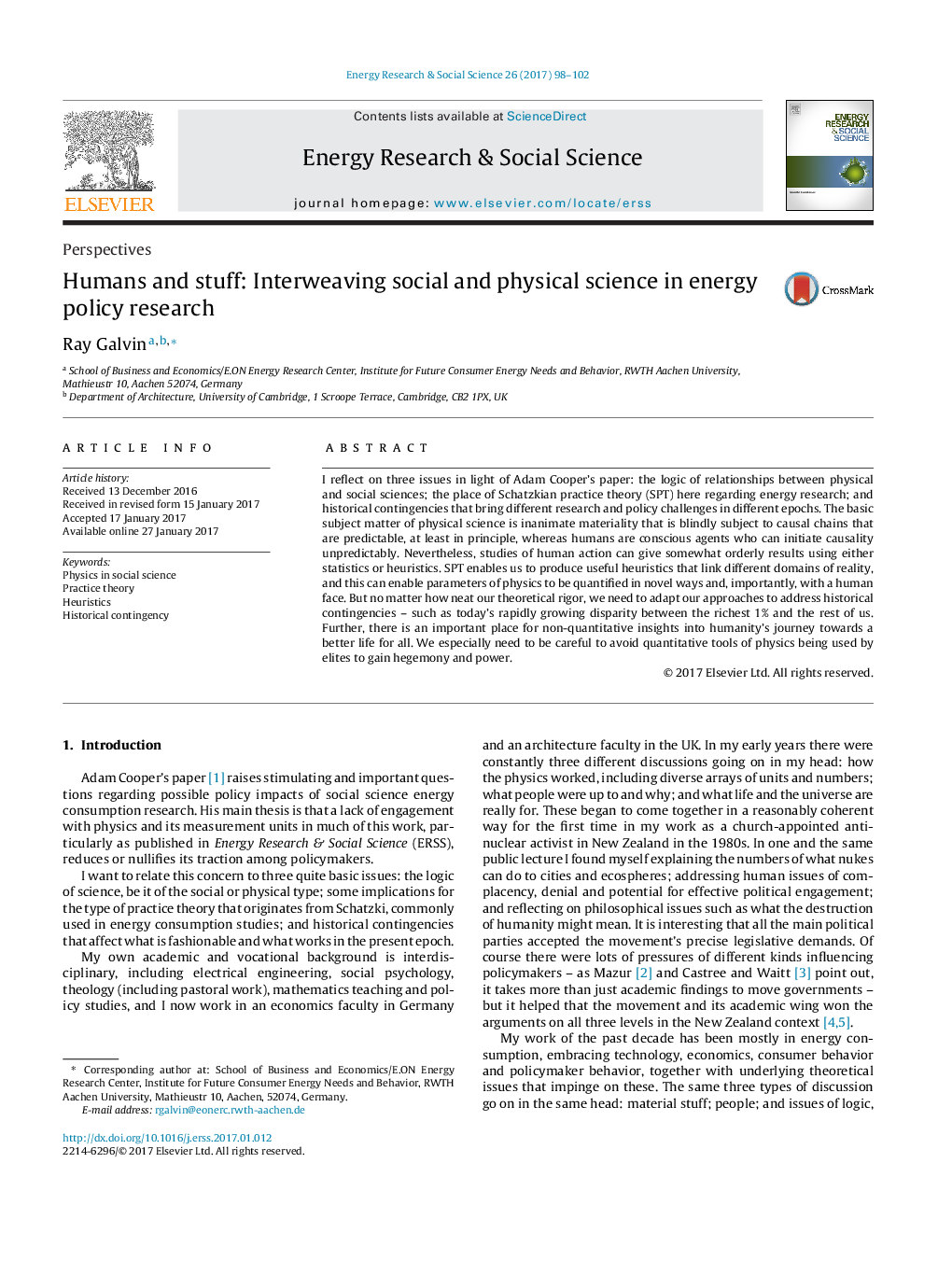| Article ID | Journal | Published Year | Pages | File Type |
|---|---|---|---|---|
| 6464053 | Energy Research & Social Science | 2017 | 5 Pages |
I reflect on three issues in light of Adam Cooper's paper: the logic of relationships between physical and social sciences; the place of Schatzkian practice theory (SPT) here regarding energy research; and historical contingencies that bring different research and policy challenges in different epochs. The basic subject matter of physical science is inanimate materiality that is blindly subject to causal chains that are predictable, at least in principle, whereas humans are conscious agents who can initiate causality unpredictably. Nevertheless, studies of human action can give somewhat orderly results using either statistics or heuristics. SPT enables us to produce useful heuristics that link different domains of reality, and this can enable parameters of physics to be quantified in novel ways and, importantly, with a human face. But no matter how neat our theoretical rigor, we need to adapt our approaches to address historical contingencies - such as today's rapidly growing disparity between the richest 1% and the rest of us. Further, there is an important place for non-quantitative insights into humanity's journey towards a better life for all. We especially need to be careful to avoid quantitative tools of physics being used by elites to gain hegemony and power.
